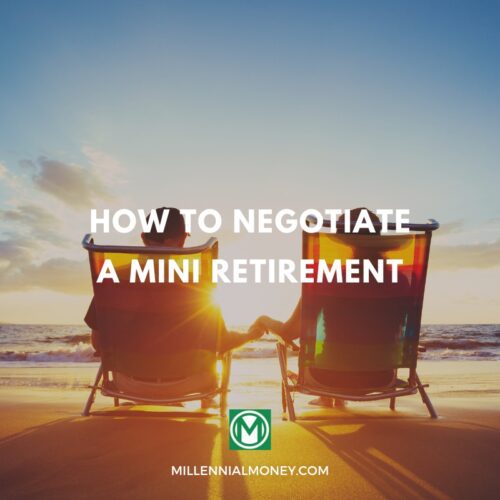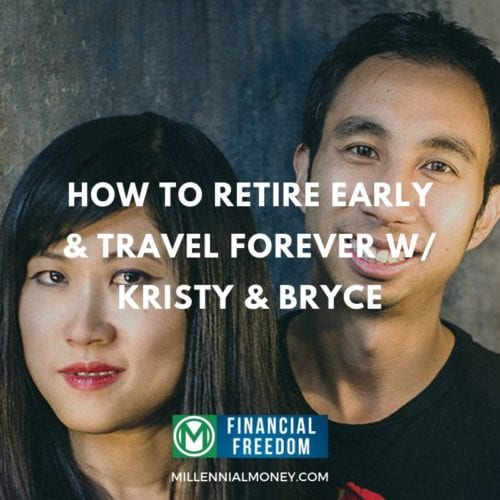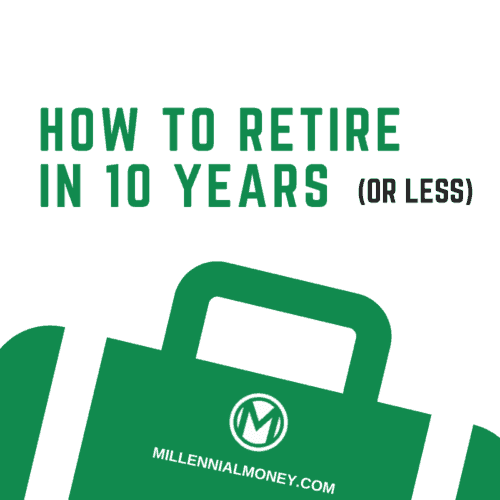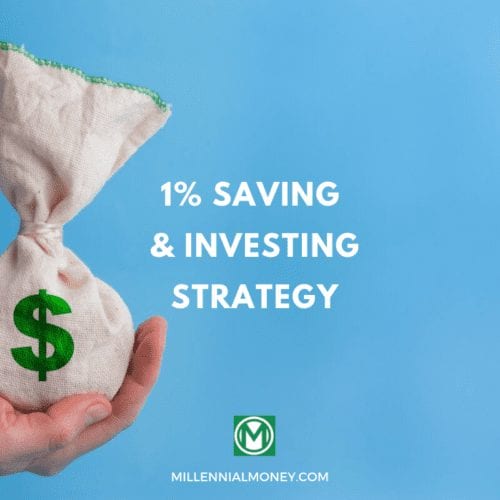A lot of Americans dream of achieving financial independence at a young age and enjoying a carefree retirement.
With the right strategy in place, it’s totally possible to retire in your 30s. It all comes down to careful planning, smart financial decisions, and a commitment to your long-term goals.
After reaching financial independence at 30, I have found some of the best ways to help you achieve early retirement. If you implement these strategies, you could put yourself on the path to financial independence and potentially enjoy your golden years decades sooner.
8 Tips To Retire in Your 30s
Here are some of my top tips for achieving early retirement in your 30s:
- Build a Plan that Works for You
- Boost Your Income
- Cut Your Spending
- Save as Much as Possible
- Max Out Retirement Contributions
- Diversify Your Investment Portfolio
- Open a Roth IRA
- Work with a Financial Advisor
1. Build a Plan that Works for You
The first step to reaching financial independence and retiring early is creating a financial game plan.
- Assess your finances: Start by assessing your current finances. You can use a budgeting app like Topia, or Empower, to track your spending and get a better understanding of your overall financial habits.
- Know your retirement number: Use our free FIRE retirement calculator to determine how much money you’ll need to retire early and to determine your savings rate.
- Establish your goals: Take the time to determine the kind of lifestyle you want to live during retirement. By setting clear and specific goals, you can develop a solid plan to save and invest accordingly.
- Find what works: There are a lot of strategies for paying off credit card and student loan debt, budgeting, and investing. Find the one that fits your lifestyle and preferences best.
2. Boost Your Income
If you’re looking to become a retiree in your 30s, boosting your income is a crucial step. Here are some effective strategies to help you maximize your earnings:
- Start a side hustle: A side hustle lets you leverage your skills and interests to create additional sources of income. Whether you start a blog, tutor, or sell handmade crafts online, there are plenty of successful side hustle ideas to choose from.
- Negotiate your salary: Don’t hesitate to ask for a raise at your current job. Research industry standards, highlight your achievements, and present a compelling case to your boss. You should also try to level up your skills and put yourself up for promotions to higher-paying roles.
- Diversify your income sources: Relying on a single income stream is risky. Explore opportunities to build passive income, like real estate investments, stock market investments, or creating an online course.
- Network and build connections: Attend industry events, join professional organizations, and network with like-minded individuals. Building a strong professional network can lead to valuable opportunities and potential clients.
By implementing these strategies, you’ll be on your way to increasing your earning potential and achieving your goal of retiring in your 30s.
3. Cut Your Spending
While it might not be the most fun element of the FIRE Movement, cutting back on spending is one of the keys to retiring early.
This can look different for everyone. Maybe you need to cut down on eating out, streaming services you rarely use, or excessive shopping.
You might need to downsize your living space, take on a roommate or two to reduce rent or consider carpooling or using public transportation for your commute.
You should also be careful to avoid lifestyle inflation, which is the urge to increase your spending as your income grows. Instead, maintain your current lifestyle and direct every extra dollar you make towards retirement savings.
Justin Root, the founder of RootofGood who retired at 33 explains how he changed his mindset around spending:
“I realized that I’m the custodian of my own wealth. I’m the steward of my own financial future. So I have to start thinking about this like a wealthy person would think about it and not spend like a new college graduate.”
4. Save as Much as Possible
Most financial experts recommend saving around 15% of your income. If you plan to retire in your 30s, that percentage should be a lot higher.
Once I launched my side hustles and had several streams of income, I worked my way up to investing 80% of my earnings.
In addition to tightening up on your living expenses and increasing your savings rate, here are a few ways to maximize your savings and lower your retirement age:
- Open a high-interest account: Stash your emergency fund and any savings you aren’t investing in a high-yield savings account, CD account, or money market account (MMA).
- Take advantage of employer contributions: If your employer offers a retirement savings plan such as a 401(k), contribute enough to receive the maximum matching contribution. This is essentially free money that can significantly boost your retirement savings.
- Automate your savings: Set up automatic contributions to your retirement accounts to ensure that you consistently save each month without having to remember to do so manually.
- Consider tax-advantaged accounts: Take advantage of tax-advantaged retirement accounts such as IRAs and Roth IRAs, which offer tax benefits and can help you save more efficiently.
- Minimize fees: Pay attention to the fees associated with your retirement accounts and choose low-cost investment options to avoid unnecessary expenses that can eat into your savings.
- Educate yourself: Stay informed about personal finance and retirement planning strategies to make informed decisions and play a proactive role in growing your retirement savings.
5. Max Out Retirement Contributions
Maxing out retirement contributions is a smart financial move. By contributing the maximum amount allowed by law to retirement accounts like your 401(k) or IRA, you can take advantage of tax benefits and build a substantial nest egg for your future.
Making the most of these contribution limits ensures that you’re setting aside as much money as possible to grow over time. The current IRS contribution limit is $22,500 for 401(k)s and $6,500 for IRAs.
It’s an effective way to secure your financial well-being during your retirement years, and it’s especially important if you’re trying to retire early. Don’t miss out on this opportunity to take advantage of compounding interest and boost your retirement income.
6. Diversify Your Investment Portfolio
Making wise investment choices is crucial if you want to retire in your 30s, and diversification is an important piece of the puzzle.
By spreading your investments across a variety of assets, such as stocks, bonds, and real estate, you can reduce the risk of relying solely on one investment.
This investing strategy aims to maximize returns while minimizing potential losses.
It’s essential to carefully research and select investments that align with your financial goals and risk tolerance.
Consulting with a financial advisor can help you develop a well-rounded portfolio that can provide long-term stability and growth. If you start early and diversify wisely, you’ll be on the path to early retirement.
7. Open a Roth IRA
A Roth IRA can be a key stepping stone to retiring in your 30s. This retirement account offers significant benefits that can help you achieve your early retirement goal.
With this individual retirement account, you contribute after-tax money, meaning you won’t be taxed when you withdraw the funds during retirement. This tax advantage can lead to significant savings over time.
Additionally, a Roth IRA provides flexibility, allowing you to withdraw your contributions tax-free and penalty-free before retirement if needed.
By starting early and taking advantage of compounding interest, you can potentially build a considerable nest egg by the time you reach your 30s.
8. Work with a Financial Advisor
Retiring in your 30s takes a lot of careful financial planning. A financial advisor can provide expertise and guidance to help you make informed decisions about saving, investing, and managing your money.
They can help you develop a personalized retirement plan tailored to your specific goals and circumstances, so you can rest assured knowing you’ll have enough money to retire.
By working closely with a financial planner, you can optimize your investment returns and minimize unnecessary risks.
They’ll also help you navigate the complex landscape of tax laws and retirement accounts, ensuring that you’re taking full advantage of any available tax advantages.
There are even financial advisors for millennials who specialize in offering tailored advice to young professionals.
INVESTMENT AND INSURANCE PRODUCTS ARE: NOT A DEPOSIT • NOT FDIC INSURED • NO BANK GUARANTEE • MAY LOSE VALUEBottom Line
Retiring in your 30s isn’t for the faint of heart. To reach your goal, you’ll need to adopt a frugal lifestyle and avoid unnecessary debts.
By minimizing expenses and living below your means, you can save a significant portion of your income and invest it wisely in your 30s.
Additionally, diversifying your investments and taking advantage of tax-efficient retirement accounts will help accelerate your path to early retirement.
With dedication, discipline, and a long-term perspective, you can achieve financial independence sooner than you might think.
Want to Learn More?
Justin from Root of Good shares the strategies he used to win the money game and retire at 33. This is next level, check it out.
Listen to this episode on your favorite platform.







Read 1 comment or add your own
Read Comments